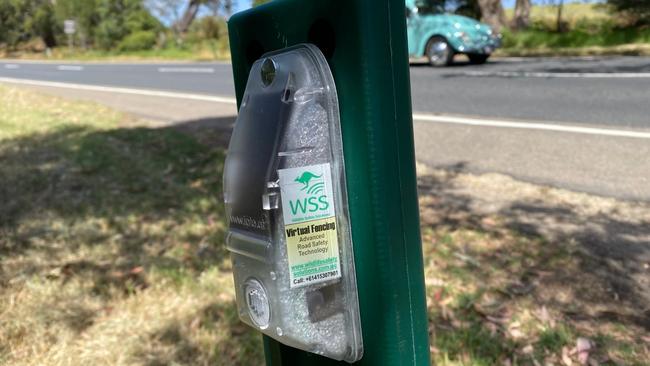Wildlife Victoria takes record number of emergency calls for native animals hit by cars
The “triple-0 service for native animals” has been flooded with calls for help over summer. Here’s why.

South East
Don't miss out on the headlines from South East . Followed categories will be added to My News.
The number of wildlife being injured and killed on Victorian roads hit record highs this summer.
Wildlife Victoria’s emergency response service received 608 calls relating to native animals involved in road trauma between December 16 and January 31, compared to 439 for the same period in 2020/21.
Spokeswoman Fiona Healy said the number of animals injured and killed was likely to be higher as not all cases were reported to the not-for-profit organisation.
“The numbers have been climbing, so unfortunately it wasn’t a surprise.”
Wildlife Victoria CEO, Lisa Palma, said wildlife related road trauma was increasing year on year as urban spread crept into the natural habitat of our native animals’ natural habitat.
“On top of that, a great deal of habitat was wiped out during the State’s last devastating bushfires,” Ms Palma said.
“It’s becoming more and more common to see native animals foraging for food alongside roadside verges between dusk and dawn.”
In 2021 the service was called to help more than 8000 native animals involved in road trauma.
Mornington Peninsula motorist Destiny Crisp, who hit a koala while driving in Mount Martha, said the experience was traumatising and urged locals to slow down.
Ms Crisp hit the animal as it was crossing Forest Drive on Thursday.
“It was too late when I saw (the koala) … I was in absolute shock and was really upset,” she said.
Ms Crisp stopped immediately and waited for hours on the dark and busy road for an emergency vet.
She said the koala later died from its injuries.
“He hasn’t made it and it makes me feel terrible to think of the fact that I was the one to hit him.”
Mornington Peninsula Shire is working with Mornington Peninsula Wildlife Action Group and Greens Bush Association to trial “virtual fencing” in a bid to stop wildlife crossing in front of vehicles.
The technology uses audio and visual alarms to deter wildlife from crossing the road when vehicles are passing.
It is triggered by approaching headlights and creates a virtual barrier of sound and light.
The fencing will be tested at a Boneo hot spot this year.
If you need help for a native animal phone Wildlife Victoria’s Emergency Response Service on (03) 8400 7300, or lodge a report via the Wildlife Victoria website.
